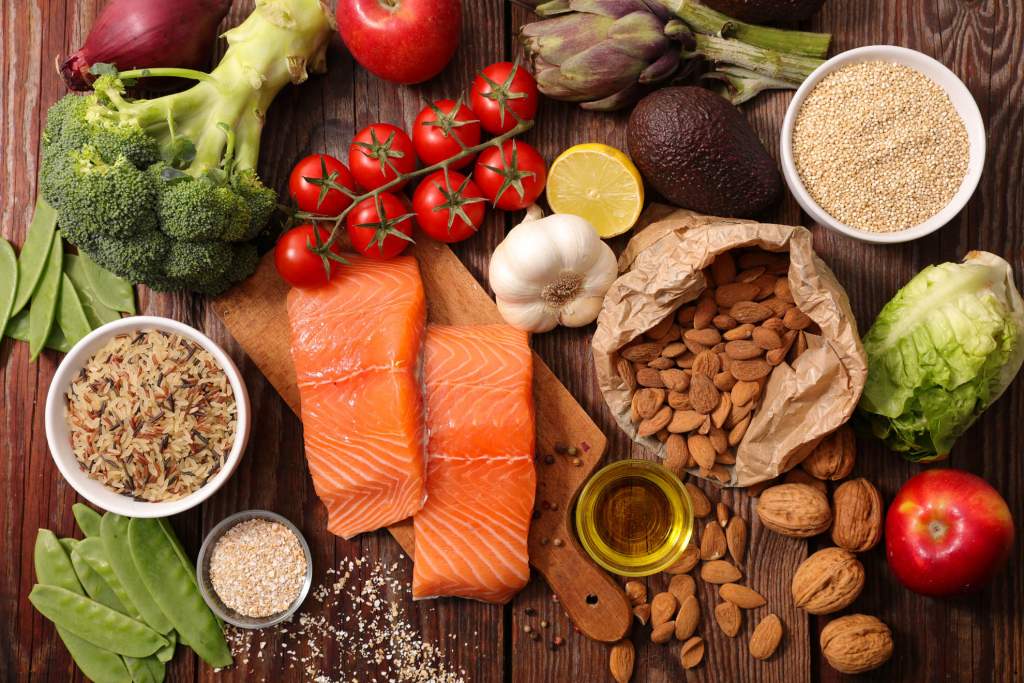With so many foods that are void of nutritional value these days, an understanding of the best nutritional foods is essential for good health. In this way, you can plan your meals and snacks to provide you with the most nutritional punch possible, instead of consuming empty calories that do nothing but promote obesity and poor health.
Overview of Proper Nutrition
One place to begin if you’d like an overview of proper nutrition is the USDA site for dietary guidelines. This information is updated every five years and provides the minimum recommendations for people to eat. Included are the recommended servings of fruits, vegetables, grains, dairy products, meats and beans and oils. Amounts recommended depend on whether a person is an adult or a child, or if a woman is pregnant or breast feeding.
The basic food pyramid recommends that people eat a minimum of three servings of whole grains, a wide variety of fresh fruits and vegetables, and an assortment of lean protein sources. Unfortunately, this is only a guide and does not go as in-depth as some may need in a list of best nutritional foods.
What Are the Best Nutritional Foods?
If you are searching for the best nutritional foods, there is a long list of foods that can be included. One site, The World’s Healthiest Foods, lists 129 foods that are considered a base for healthy eating. Memorizing such a list would be difficult, to say the least. Remembering some basic guidelines is much easier.
In a nutshell, the best nutritional foods are whole foods that have not been processed or have undergone very minimal processing. Rice, for example, is much healthier when it’s natural brown rice as opposed to processed white rice. Processing removes many important nutrients, including much of the B vitamins, iron and dietary fiber. Brown rice may take a bit longer to cook, but the added nutrients are well worth it. The flavor of brown rice also is wonderful and it adds a nice texture to your meals.
Fruits and vegetables should be eaten in quantity. Aim for several servings with each meal. It’s a good idea to look for fresh, organic produce to reduce the chances of taking in chemicals, which are believed to contribute to numerous health issues, including cancer. Ideally, the more color, the better when selecting produce. Dark green vegetables provide many vitamins such as vitamins A and C, iron, calcium and more. Red, blue and purple berries are rich in antioxidants and vitamin C. The more color you include in your diet, in the form of natural foods as opposed to artificial colors, the healthier you will be.
Protein sources also are important for building muscle tissue. Some people prefer to get their protein from non-animal sources, such as beans or tofu. Those who enjoy eating meat should choose from lean cuts that are broiled, boiled or baked. Avoid meats that are deep fried in oils, as this adds unhealthy fats to your diet, which can contribute to heart problems.
Super Foods
You likely see much media hype about so-called super foods. These foods may include exotic fruits such as acai berries. Other nutrient-rich super foods include more easier found foods such as blueberries, spinach or green tea. Before you buy into hype, keep in mind that you can have a very healthy diet without spending crazy amounts of money on exotic, unusual foods. You don’t need a special source for most of what you need to be healthy. You usually can find high-quality fruits, vegetables and other foods at your local grocery store, natural foods store or farmers market–without spending a small fortune.
Some people worry that these healthy foods are more costly than processed packaged foods. While this may be true, you also should consider your health in the total cost. Processed foods that are high in fat, salt, sugar and calories may be inexpensive, but they contribute to countless health problems. Many people today do not have health insurance, and the cost of medical care is not cheap. If you think you cannot afford as much fresh food as you’d like, try growing your own. You’ll not only save money, but you’ll get exercise as well. Together these things will contribute to improved health. In the long run, your monetary and health savings will be priceless.
